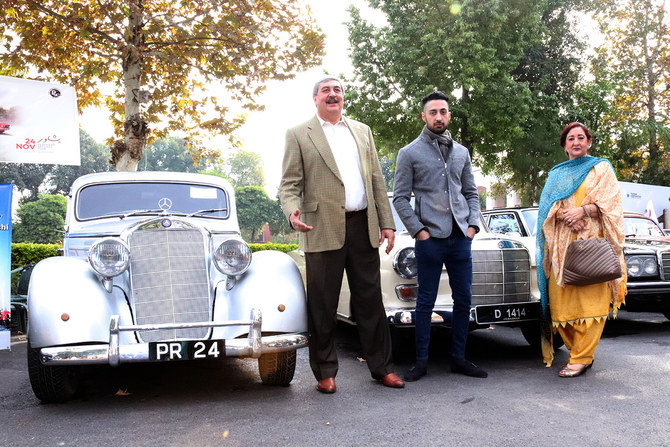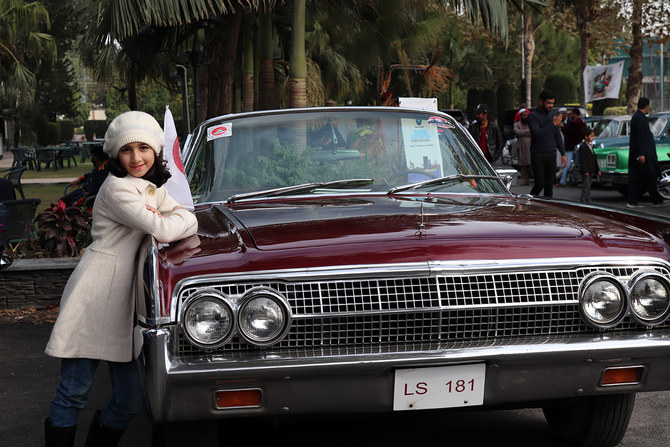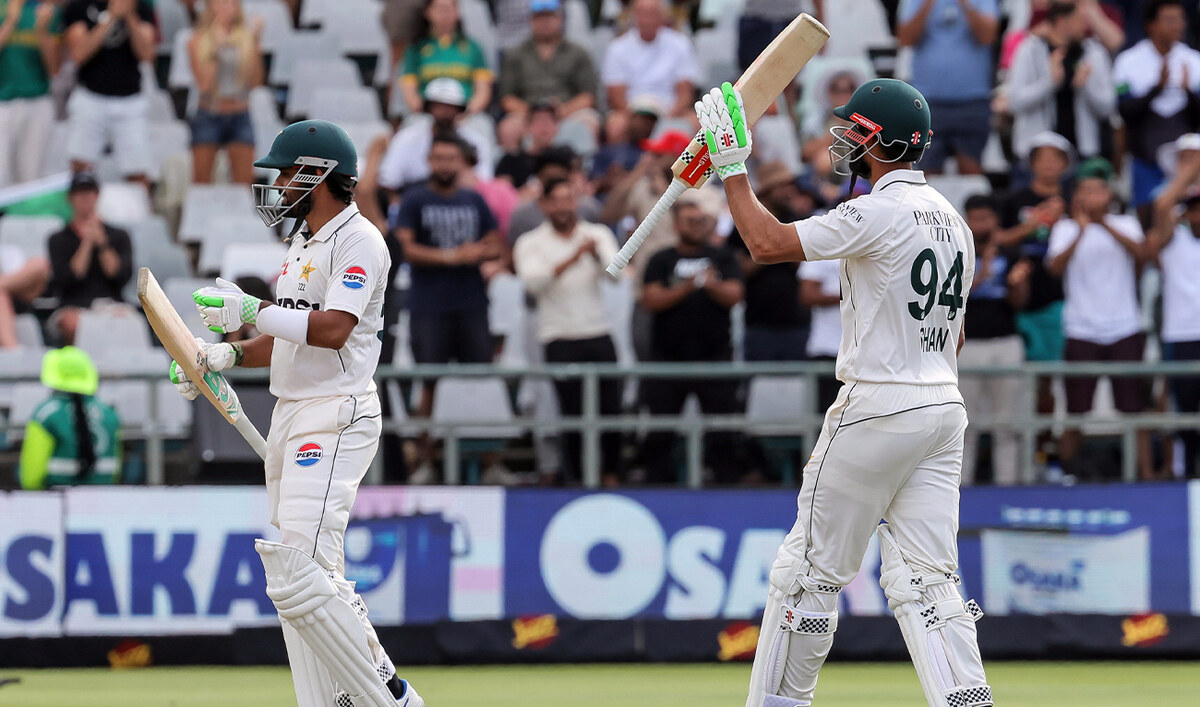PESHAWAR: Dozens of vintage cars, part of the 1600 km Khyber to Karachi annual cross country rally, reached the northwestern city of Peshawar on Sunday for the 10th year running.
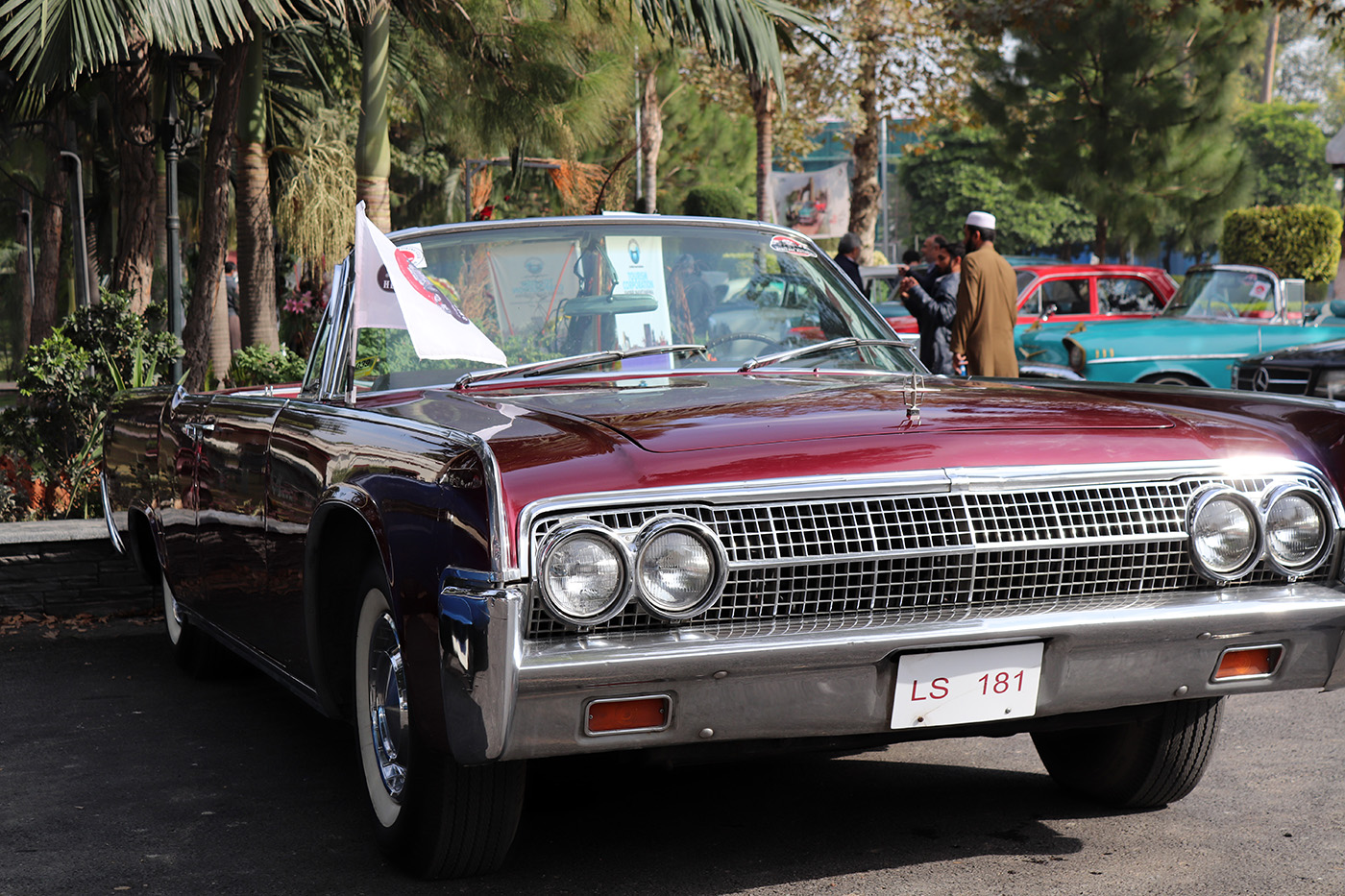
Classic cars lined up at their first stop, the Peshawar Services Club, on Sunday. Nov. 24, 2019 (AN Photo)
Classic car lovers flocked to the Peshawar club to see the rare cars, around 50 in total, lined up with their proud owners at hand to show off their prized possessions.
Shahzad Waseem from Punjab is a regular participant at the rally every year, and is attending in his 1959 Chevrolet Impala.
“For 20 years, I’ve been in love with these old cars and own at least one classic car at any given time,” Waseem told Arab News.
“Though my staff could look after the car for me, it’s something so special that I take care of it myself,” he said.
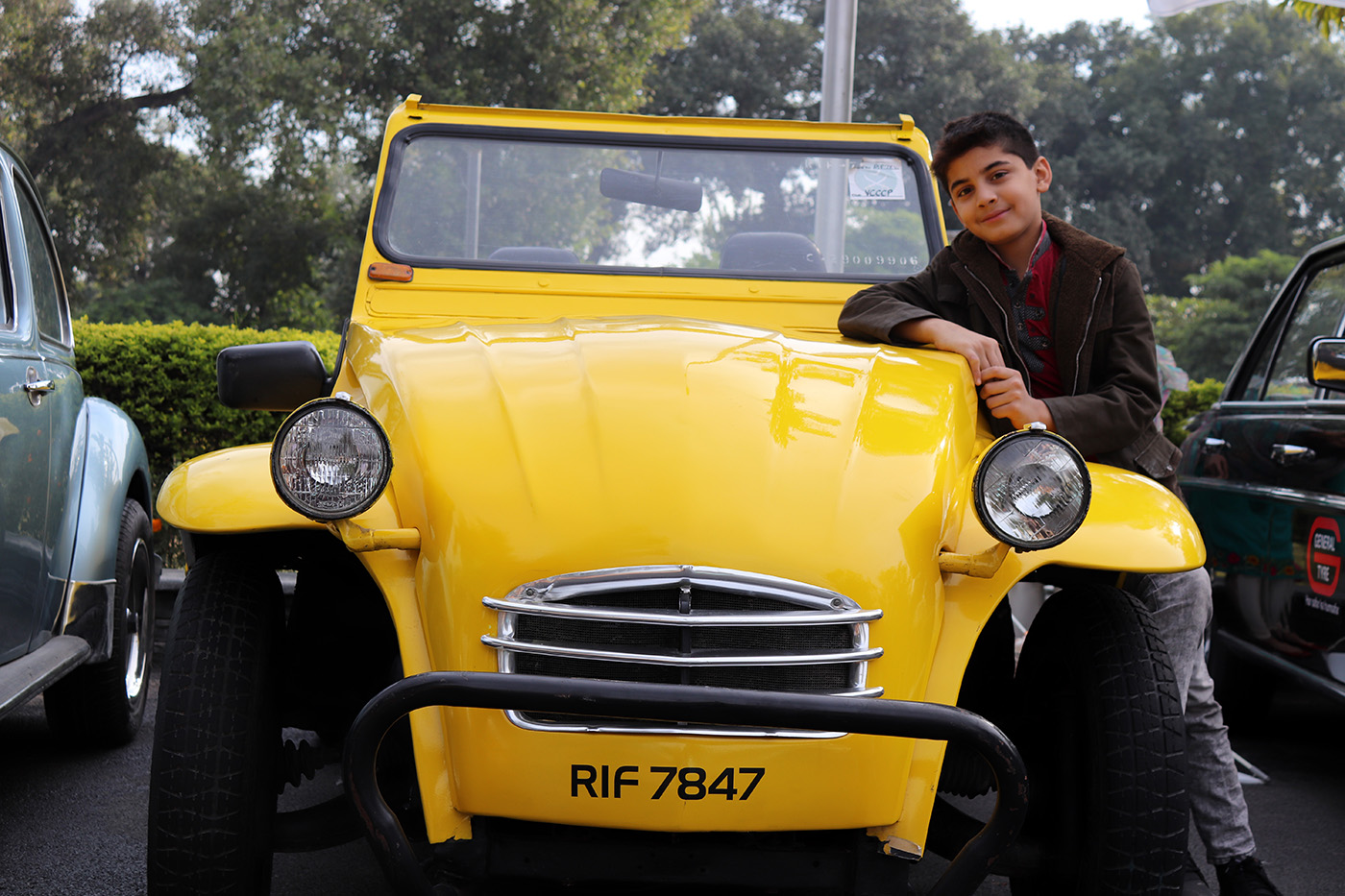
A child poses with a classic car, parked at the Peshawar Services Club and part of the annual Khyber to Karachi vintage rally. Nov. 24, 2019. (AN Photo)
Safia Awan, a rally participant from Islamabad, said she loves vintage cars and owns dozens of them alongside her husband. She joined the caravan on Saturday as it left Khyber.
“Driving an old car down historical Khyber routes reminds me of the history and importance of this road,” Awan told Arab News.
“Participants of the rally value their past and appreciate our history and a demonstration like this rally connects us all, while presenting a softer image of Pakistan locally and to the outside world” she said.

A Volkswagen station wagen covered in quirky artwork at the Peshawar Club, where it is part of the line up for the annual Khyber to Karachi vintage car rally. Nov. 24, 2019. (AN Photo)
Adil Zareef, who runs an educational institute in Peshawar, has traveled around the world in his 1978 Volkswagen station wagon, which he bought in Germany, and in which he said, he’s traveled in five continents. The car has two beds, a baby hammock, a refrigerator, two cooking burners, a water tank and a music system.
“This is priceless and most of the maintenance work I do on it myself,” Zareef said proudly. “Since school days, I would stand on the side of the road and just watch cars go by.”

A musical band plays for visitors at the Peshawar Club where the vintage car rally made its first stop on Sunday. Nov. 24, 2019. (AN Photo)
From Balochistan, Shah Nawaz Khan is the owner of the oldest classic car in the vintage rally.
“I bought a 1934 model Austin 15 years ago, and since then, I keep it like a part of my own body,” Khan told Arab News. “When I was a child, I used to make cars from clay but now that I earn enough, I’ve fulfilled my childhood dream,” he said.
The cars are scheduled to reach Karachi on Dec. 1, and their caravan will be making stops in big cities along the way.





